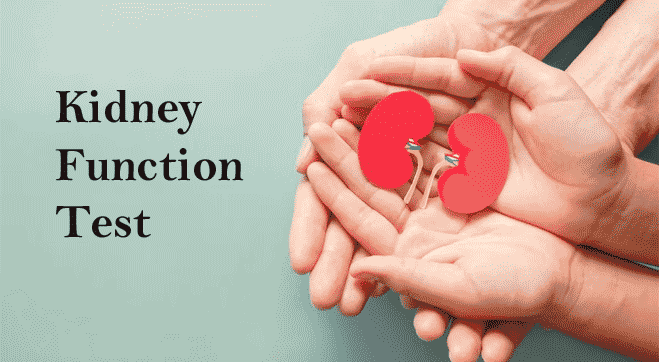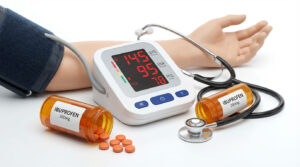kidneys are one of the most important organs of the body. They are responsible for eliminating all the toxins and waste generated as a result of biochemical reactions occurring in the system. They primarily work by filtering the waste from the body and then expelling it in the form of urine. Along with this, kidneys are essential to control the levels of water, electrolytes and other vital minerals. They are also heavily involved in the production of vitamin D, erythrocytes or red blood cells and help synthesise renin, a hormone that regulates blood pressure.
When the kidneys don’t function effectively, it results in waste and toxins accumulate in the system resulting in chronic damage. Although an individual can survive with one kidney, a kidney could prove to be fatal in certain cases. A kidney function test helps medical practitioners diagnose kidney failure allowing them to choose the best course of treatment for a promising prognosis.
What Are Kidney Function Tests?
Kidney function tests or renal profile tests refer to a series of blood and urine routine microscopy test to help measure kidney working and identify kidney failure. There are several types of kidney function tests to analyse the effective functioning of the kidneys.
Broad Urine Test or Urinalysis
In a renal profile test, a small sample of urine is collected and processed to identify any kidney-related issues and to give a general direction for the diagnosis or treatment of an ailment. If the test indicates the presence of blood, pus, bacteria, glucose molecules or proteins in urine, it reveals issues such as bladder infections, kidney stones or diabetes.
Urine Albumin Analysis
Albumin is a water-soluble protein produced by the liver and found in the blood. When healthy kidneys filter the body’s blood, they don’t expel albumin into the urine. However, if a kidney is damaged or isn’t functioning properly, it will allow higher levels of albumin to pass.
Normal Kidney Functioning: Below 30 mg/g
Abnormal Kidney Functioning/Kidney Disease: Above 30 mg/g
Creatinine serum test
creatinine is the byproduct of wear and tears during muscle functioning and protein metabolism. Being a waste product, it is filtered out of the blood by the kidneys. If the kidneys have failed or aren’t working properly, the creatinine levels in the blood (or serum) will increase due to reduced clearance from the kidneys.
In this test, both blood and urine samples are analysed where the creatinine levels in the blood and urine are compared to check for effective kidney working. Elevated serum creatinine concentrations are strong indicators of kidney problems. The typically accepted range for serum creatinine levels are:
Normal Kidney Functioning, Adult Men: 0.74 to 1.35 mg/dL
Normal Kidney Functioning, Adult Women: 0.59 to 1.04 mg/dL
Glomerular Filtration Rate Test
A glomerular filtration rate or GFR test is a blood test that checks how well the kidneys are functioning by measuring the amount of blood passing through the glomeruli (tiny filters of the kidney) per minute.
Due to the sophistication and high skill involved, the kidney function test price for a measured GFR is higher than that of the estimated GFR. If you’re showing risk symptoms or at an early stage of kidney disease, your healthcare provider may recommend a GFR to check for kidney functioning. If the volume of blood estimated by the test is low, it indicates damage to the kidneys.
Normal GFR: 60 or above
Kidney Disease: Below 60
Kidney Failure: 15 or below
Urea (or) Blood Urea Nitrogen Test
The liver produces an organic compound known as urea at the end of the urea cycle. It is the converted form of ammonia that is produced during the digestion of protein that is expelled out of the body through urine. The blood urea nitrogen test or the BUN test checks for the level of blood urea in the body. If the BUN level is high, it indicates poor kidney functioning.
Normal Range, Adult: 7 to 20 mg/dL
However, with this test, it is crucial to note that strong medications such as antibiotics or high protein diets can affect the final result. In such cases, medical practitioners will compare your BUN levels with serum creatinine levels to better understand the working of your kidneys.
Electrolyte Test
Electrolytes are minerals such as calcium, chloride, potassium, or sodium. They are present in body fluids that contain ions and carry a charge to facilitate body functions. An electrolytes serum test helps monitor the level of electrolytes in the body to indicate the working of kidneys.
Imaging Tests: Ultrasound, CT, Biopsy
Imaging tests are renal profile tests that allow medical practitioners to check for physical trauma to the kidneys. Ultrasounds observe any changes in kidney shape or position, Kidney stones, blockages or tumour. CT scans help analyse if the kidneys are structurally sound or if they have any deformations. In kidney biopsies, a small piece of kidney tissue is examined for diagnostic purposes.
Why Should I Get A Renal Profile?
Renal functioning tests are useful in screening for kidney-related ailments. They help monitor kidney functioning in those who’ve been diagnosed with kidney diseases or have risk factors such as old age, diabetes and high blood pressure.
Further, if you find yourself exhibiting some of the symptoms of renal problems such as frequent urination, difficulty or pain during urination, bloody urine, high blood pressure or fluid retention in the limbs, you should start looking up renal blood test prices and book an appointment immediately.
If you get diagnosed early, there’s a high chance of beating the disease. Renal profile tests can help you delay or prevent the incidence of kidney failure or renal damage.
For increased safety, test for kidney problems early!
Routine renal exams can help in the diagnosis and treatment of medical conditions. Even if you’re not experiencing symptoms, it’s advisable to get a kidney function test regularly to identify any potential problems that could arise.








